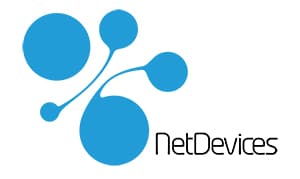Les applications mobiles d’aujourd’hui nécessitent une infrastructure flexible et évolutive pour répondre aux fluctuations du trafic et garantir une expérience utilisateur optimale. NetDevices utilise régulièrement Kubernetes pour optimiser la scalabilité des projets de nos clients.
Pairing Technology, un de nos clients avait besoin d’un hébergement dans un cloud “souverain”. Nous nous sommes donc tournés vers OVH Cloud.
Voici les étapes à retenir pour déployer Kubernetes dans OVH Cloud Public :
1. Comprendre les besoins d’évolutivité :
Il est important de comprendre les exigences spécifiques d’évolutivité de votre application mobile. Évaluez les variations de trafic, les charges de travail prévues et les ressources nécessaires.
2. Déployer un Cluster Kubernetes sur OVH :
OVH propose des services Kubernetes gérés, tels que l’OVH Managed Kubernetes Service (OKS). Créez un cluster Kubernetes pour votre projet afin de bénéficier de la gestion simplifiée de l’infrastructure.
3. Déploiement des Services :
Utilisez des fichiers de configuration Kubernetes pour déployer vos services, tels que les serveurs backend, bases de données, et autres composants nécessaires à votre application.
4. Mise à l’échelle automatique :
Configurez l’auto scaling pour vos déploiements. Cela permettra au nombre de pods de s’ajuster automatiquement en fonction de la charge de travail, assurant une réponse agile aux fluctuations du trafic.
5. Optimisation des Ressources :
Définissez les limites et les demandes de ressources pour chaque conteneur. Cela permet d’optimiser l’utilisation des ressources, de prévenir les surcharges et de garantir une performance stable.
6. Gestion du Trafic Entrant :
Utilisez des contrôleurs d’entrée pour gérer le trafic entrant. Cela facilite la distribution des requêtes aux services appropriés, améliorant ainsi l’équilibrage de charge.
7. ConfigMaps et Secrets :
Le fait de centraliser la configuration spécifique à l’environnement dans ConfigMaps et d’utiliser des Secrets pour gérer les informations sensibles. Cela simplifie la gestion des configurations sans nuire à la sécurité.
8. Suivi et journalisation :
Mettez en place des outils de surveillance et de journalisation pour suivre les performances de votre application. Identifiez rapidement les goulots d’étranglement et répondez proactivement aux problèmes.
9. Stratégies de Mise à Jour sans Temps d’Arrêt :
Utilisez des stratégies de mise à jour sans temps d’arrêt pour garantir une disponibilité continue pendant les mises à jour de votre application, minimisant ainsi l’impact sur les utilisateurs.
10. Sécurité :
Mettez en œuvre des mesures de sécurité telles que RBAC, Network Policy, et assurez-vous de sécuriser l’accès à vos services. La sécurité est cruciale, surtout dans un environnement cloud public.
En résumé, adopter Kubernetes dans votre projet d’applications mobiles déployé sur le cloud OVH, vous permet de transformer votre infrastructure en une plateforme agile et évolutive. La combinaison de l’auto scaling, de l’optimisation des ressources et de la gestion avancée du trafic permettra à votre application de prospérer dans un environnement cloud dynamique.
Vous pouvez explorer ces conseils, les personnaliser en fonction des besoins spécifiques de votre projet, tout comme vous pouvez solliciter notre équipe d’experts NetDevices pour propulser votre application mobile vers de nouveaux sommets de performance et d’évolutivité.
Bon déploiement !
Partager la publication "Comment utiliser kubernetes pour optimiser la scalabilité d’un projet d’applications mobiles qui sera déployé dans le cloud public OVH ?"



